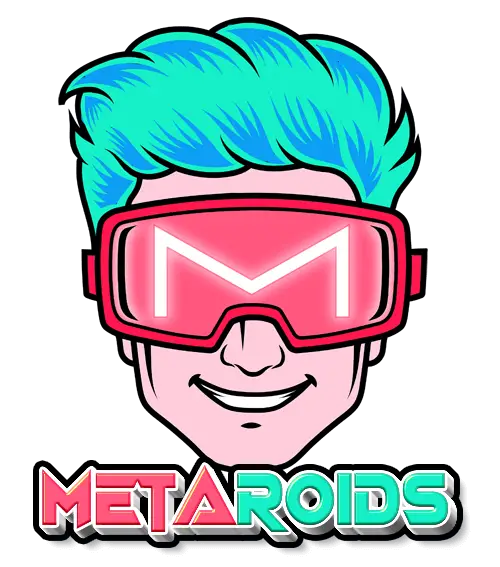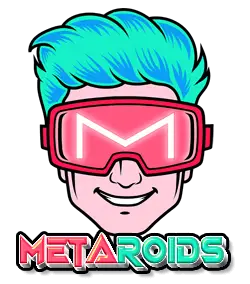Ethereum will succeed because the world needs unstoppable applications that can be built on top of it. It has the first-mover advantage which has created a network effect that propels it ahead of its competitors. And when ETH 2.0 becomes fully implemented, the network can scale to 100,000 transactions per second (tps).
Whether Ethereum will succeed or not depends on how long it can scale before it loses its network-effect-driven dominance in the crypto space.
What is Ethereum?
Ethereum is a blockchain-based smart contract platform intended to become a decentralized global operating system. It paved the way for the creation of decentralized applications (DApps) and programmable money.
There are countless projects trying to achieve the same thing and the vast majority of them can’t hold a candle to Ethereum. However, some blockchain ecosystems like Cardano are worth considering.
Nevertheless, no project is on par with Ethereum when you consider the ecosystem in its entirety. The scale of developers, enterprises, community, supporters, partnerships, and integrations that Ethereum has mustered over the years is beyond anything other blockchain projects have ever done except Bitcoin.
Why Ethereum will succeed?
Ethereum will succeed because:
- the world needs unstoppable applications
- Ethereum 2.0 will scale the network to 100,000 tps
- the network effect has brought Ethereum so far ahead
The World Needs Unstoppable Applications
There is a great demand for Ethereum. The world needs it.
Censorship has more negatives than positives
It’s not a debate that censorship is rampant among centralized tech platforms like YouTube, Facebook, Twitter, Instagram, forums, etc. And contrary to what most people believe, these platforms are not entirely to blame.
The team behind these applications have to moderate their content because there are laws that penalize them if they fail to do so.

For instance, videos exhibiting the ingestion of narcotics and other Schedule I substances must be censored by YouTube. If they don’t, then the United States government agencies (DEA, FBI) would send them court orders to take the content down…or else.
But censorship, if left unchecked, could significantly curtail our online experience. Did you know that last year the European Union (EU) tried to ban memes? Fortunately, they failed.
Laws are not universal
And this is why unstoppable applications are extremely important for the future of global platforms. We know a lot of laws make sense but not all of them do.
When someone tells you that something is illegal, your answer should be “where”?
There are about five countries in the world where atheism is a crime by default; some of them extreme enough to warrant the death penalty.
But the LGBTQ communities have it worse with at least 76 countries criminalizing an activity in which to them is natural. That’s because for Islamic countries, homosexuality is blasphemy and obscenity.

For some people, this is an absolute violation of human rights. But for these countries, it is a logical and moral punishment.
That’s because morality, as bad as we want it to be, is not universal. Morality varies from the cultural level down to the individual level.
Besides your parents, do you know anyone who shares 100% the same moral code as you? Probably not.
And so if we were to have this global platform that can run unstoppable applications, there are only two options: all laws apply or no laws apply. The former would be impossible to implement because a lot of laws are contradictory.
Blockchains with on-chain governance need to tread carefully
Then we need to settle for no laws. And that’s what Ethereum has been building for years. Other similar projects like Tron try to create this flimsy governance structure, unbeknownst to them that they are creating a liability for themselves.
If a blockchain governance system has the ability to moderate the contents then the governors become a target. And therefore, they become single points of failure.
I’m not saying that we should not have on-chain governance. But if we do, then we must be very careful about what ability we give to the governors of the chain. We must limit their power as much as possible for their sakes and ours as users.
And this is why Ethereum is still considered by many to be the leading smart contract blockchain because it doesn’t require on-chain governance.
Ethereum 2.0 Is Coming
Ethereum 2.0 is the ultimate upgrade of the protocol, allowing Ethereum to scale to 100,000 tps. But for the first couple of years, Ethereum has to walk and “roll” before it can run, according to Vitalik.
This basically means that before users can fully utilize the proof of stake chain, they would have to settle with the old chain for about 2 years or so. However, Ethereum will be able to scale to 2,000-3,000 tps even with the old chain once Rollups and other second-layer solutions are utilized.
Not bad at all considering Ethereum could only process around 15 tps today.
Ethereum 2.0 will be released in multiple phases: Phase 0, 1, 2, and 3.
Ethereum researcher Justin Drake said that the Phase 0 launch would be delayed to January 2021. However, Ethereum co-founder Vitalik Buterin disagrees, anticipating a November 2020 release date.
A lot of people are getting really impatient will all of Ethereum’s delays. But in Ethereum’s defense, great project development takes time. The same is true with Bitcoin.
If you want something done fast, then Tron would be a great fit for you. But then again, most of their DApps are either gambling or high-risk. Let’s compare the two smart contract platforms.


Based on their top 25 DApps comparison, you could easily tell which project is superior. As stated, great projects like Ethereum take time.
Meanwhile, off-chain solutions (2,000-3,000 tps) will be enough to keep the users from becoming restless while waiting for the proof of stake chain to become usable.
Network Effect
Ethereum is a decentralized open computer system that allows anyone to build whatever they want on it without permission. And it is this openness that has sparked an explosion of innovation in decentralized applications.
As more developers built applications on Ethereum, it created this snowball effect of unstoppable applications that have integrated with one another.
From ICO to DeFi
It started with the ICO craze in 2017-18. A lot of those projects didn’t amount to anything and had to shut down. But the few projects that had brilliant founders and solid use cases brought real innovation to the space.
And it paved the way for decentralized finance (DeFi), an absolute killer application. DeFi was popularized by Maker in early 2019. Back then, stablecoins were the “holy grail” of crypto.
Then many people realized that they could make money leveraging DAI. This paved the way for crypto lending and borrowing.
Then Compound came along to integrate with DAI and add more functionality. This enabled DAI holders to earn interest by locking up their assets in Compound contracts. Concurrently, other DeFi apps like Uniswap, Kyber Network, and LEND have also flourished.
And then we had fully autonomous DEXs that finally work and in some respects, are more convenient than centralized crypto exchanges. And these DEXs have integrated with one another.
Furthermore, new innovations like wrapped crypto tokens have been brought to life to make it easier to put money in DeFi applications.
Today, DeFi has become so immense that it might as well be its own thing. Among the new protocols, we have Synthetix, Balancer, Compound, etc. And it all happened so fast that it makes us wonder what could happen in a few years.
And that’s the beauty of open-source and decentralization. We have this massive network of applications that are integrated and are built on top of each other forming new solutions. And it has benefited all the participants from the projects down to the end-users.
This looks like the foundation of an internet of blockchains. And Ethereum has first-mover advantage.
Note that first-mover advantage is more powerful in an open-source system because it is permissionless. And that is why Ethereum will succeed.
The Takeaway
Ethereum remains the number one smart contract platform among all crypto projects. There are notable competitors like Cardano and Neo, and in some ways, they offer equally great solutions. However, none of them are on par with Ethereum when everything is considered.
As the world leans toward freedom of expression, a technology like Ethereum is crucial for us to live the way we want.
And this is why it is likely that Ethereum will succeed.
Join our newsletter as we build a community of AI and web3 pioneers.
The next 3-5 years is when new industry titans will emerge, and we want you to be one of them.
Benefits include:
- Receive updates on the most significant trends
- Receive crucial insights that will help you stay ahead in the tech world
- The chance to be part of our OG community, which will have exclusive membership perks


